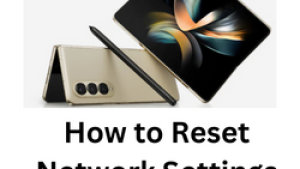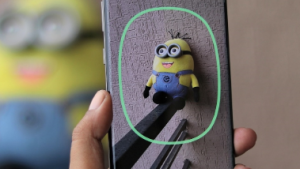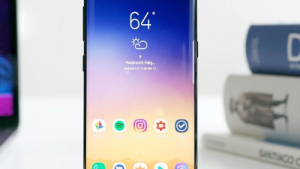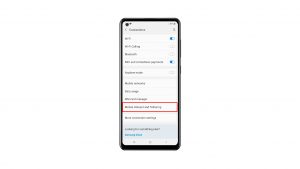UPDATE: We’ve published another post that tackles the black screen of death but this time we know what works and what not. Visit Fixing Samsung Galaxy Note 8 with Black Screen of Death (easy steps) for the solution to this problem.
The Black Screen of Death (BSoD) is one of the most dreaded problems among Samsung owners and it seems like many Galaxy Note 8 owners are also experiencing this problem. Some of our readers have contacted in regards to this problem that’s why we need to address this issue for the benefit of our readers.
Based on our experience, this problem may range from a very minor firmware glitch or crash to a more complicated hardware issue. The best thing we can do about it is rule out the possibility that this issue is just with the firmware. If it is, we actually have a shot at fixing it but if it’s a problem with the hardware, then we have technicians who can check your phone and fix it. If you’re one of the owners of this phone and bugged by the same issue, continue reading as this post may help you.
Before we move on to our guide, if you have other issues with your device make sure you visit our Note 8 troubleshooting page for we have already addressed some of the most common issues with this device. Find problems that are similar with yours and use the solutions we suggested. If you still need our help after that, then fill up our questionnaire and hit submit to contact us.
Troubleshooting Note 8 with black screen issue
Our priority here is to know what the problem is so that we can try to formulate a solution that might fix it. I will provide you with some things you can do to rule out each possibility and if at the end of our troubleshooting the problem is still not fixed, then it would be a sign of a more serious issue and you may need to consult a technician for that. Here’s what I suggest you do about this…
Force restart your Galaxy Note 8
Many of the problems we encountered before that resulted to a black and unresponsive screen were caused by a system crash. When this happens, the phone may become unresponsive that it won’t respond no matter what you do.
Usually, for phones with removable battery, we will pull the battery out of them and they would work the next time you attempt to turn them on. The Note 8 however, doesn’t have a removable battery so we cannot do such procedure. However, we can still simulate the battery disconnect by doing the Forced Restart procedure which basically has the same effect ot the phone.
- Press and hold the Volume Down key and without letting go of it, hold down the Power key. Keep both keys pressed for 7 to 10 seconds or until the screen lights up.
If your device turns on after doing this, then the problem may have been just a minor glitch in the system or a crash. It’s a fix but there’s no guarantee that the problem would no longer occur in the future.
Try charging your Galaxy Note 8
If the Forced Restart procedure didn’t fix the problem, the next thing you should do is make sure there’s enough battery to power up the phone. Plug the charger to a working wall outlet and connect your phone to the other end of the cable. Regardless whether it displays the usual charging signs or not, let it charge for at least ten minutes just to make sure the battery is charged even a little bit.
After giving the battery some time to charge, try turning the phone on to see if it does. Or better yet, do the forced restart procedure again but this time while the device is plugged in. If the phone turns on and boots up successfully, then you can rest assured that there’s no serious problem with your device but a drained battery. However, if it still refuses to turn on, then you have to try other methods.
Try running it in safe mode
There’s a possibility that the problem is caused by an app or two and more often than not, it’s the third-party apps that have a tendency to cause conflict in the system. We have to rule out this possibility and to do that, try running your phone in safe mode. In this environment, all third-party apps and services are temporarily disabled so it follows that if this problem is caused by one of them, your phone should start up into this mode. You only have to do this if you already tried charging your phone and tried the forced restart to no avail. To try running the Note 8 in safe mode, follow these steps…
- Turn the device off.
- Press and hold the Power key past the model name screen.
- When “SAMSUNG” appears on the screen, release the Power key.
- Immediately after releasing the Power key, press and hold the Volume down key.
- Continue to hold the Volume down key until the device finishes restarting.
- Safe mode will display in the bottom left corner of the screen.
- Release the Volume down key when you see Safe Mode.
Assuming your phone turned on into this mode, try rebooting it normally to see if it starts in normal mode this time. If not, then you have to boot to safe mode again, look for apps that cause the problem and uninstall them one by one:
- From the Home screen, swipe up on an empty spot to open the Apps tray.
- Tap Settings > Apps.
- Tap the desired application in the default list or tap 3 dots icon > Show system apps to display pre-installed apps.
- Tap the desired application.
- Tap Uninstall.
- Tap Uninstall again to confirm.
However, if the device still refuses to respond, then move on to the next step.
Attempt to start it up in Recovery Mode
What we’re doing here is trying to start your phone in every mode to see if it’s still capable of turning on into one of the important environments because if it does, you can rest assured now that the hardware of your device is fine.
Assuming the problem is with the firmware, there’s a chance it will run in recovery mode wherein you can do a couple of things that have really great impact on your phone’s performance. If successful, the first thing you should do is wipe the cache partition to delete and replace all system caches. If that doesn’t work you should try doing the Master reset which will bring the phone back to its factory default settings.
How to run Note8 in Recovery mode and wipe cache partition
- Press and hold the Volume Up key and the Bixby key, then press and hold the Power key.
- When the green Android logo displays, release all keys (‘Installing system update’ will show for about 30 – 60 seconds before showing the Android system recovery menu options).
- Press the Volume down key several times to highlight ‘wipe cache partition’.
- Press Power button to select.
- Press the Volume down key until ‘yes’ is highlighted and press the Power button.
- When the wipe cache partition is complete, “Reboot system now” is highlighted.
- Press the Power key to restart the device.
How to do the Master reset on Note 8 via recovery mode
Take note that all your files and personal data will be delete and you may not be able to recover them after the reset. But you have no other choice now but to do this procedure:
- Press and hold the Volume Up key and the Bixby key, then press and hold the Power key.
- When the green Android logo displays, release all keys (‘Installing system update’ will show for about 30 – 60 seconds before showing the Android system recovery menu options).
- Press the Volume down key several times to highlight “wipe data / factory reset.
- Press Power button to select.
- Press the Volume down key until ‘Yes — delete all user data’ is highlighted.
- Press Power button to select and start the master reset.
- When the master reset is complete, “Reboot system now” is highlighted.
- Press the Power key to restart the device.
If these procedures don’t help or if your phone cannot boot up in recovery mode, then you have to bring it to the shop to have a technician take a look at it.
Posts you may also like to read:
- Samsung Galaxy Note8 keeps showing “Unfortunately, Settings has stopped” error [Troubleshooting Guide]
- Why does Samsung Galaxy Note 8 automatically closes its notification tray? Here’s how to fix it…
- Fix Galaxy Note8 that gets stuck on the Samsung logo [Troubleshooting Guide]
- How to fix your Samsung Galaxy Note8 that can’t connect to Wi-Fi [Troubleshooting Guide]
- Galaxy Note 8 mobile data keeps disconnecting, wifi drops over and over again, other issues
- How to fix your Samsung Galaxy Note8 that keeps showing “moisture detected” warning [Troubleshooting Guide]




![Samsung Galaxy S8 started running slow after an update [Troubleshooting guide]](https://thedroidguy.com/wp-content/uploads/2017/06/Samsung-Galaxy-S8-running-slow-300x169.jpg)
![How to fix a Huawei P10 smartphone that won’t turn on? [Troubleshooting Guide]](https://thedroidguy.com/wp-content/uploads/2018/02/huawei-p10-facebook-has-stopped-300x169.jpg)



![How to fix a Samsung Galaxy S9 that cannot read SD card [Troubleshooting Guide]](https://thedroidguy.com/wp-content/uploads/2018/08/S96-300x169.jpg)







